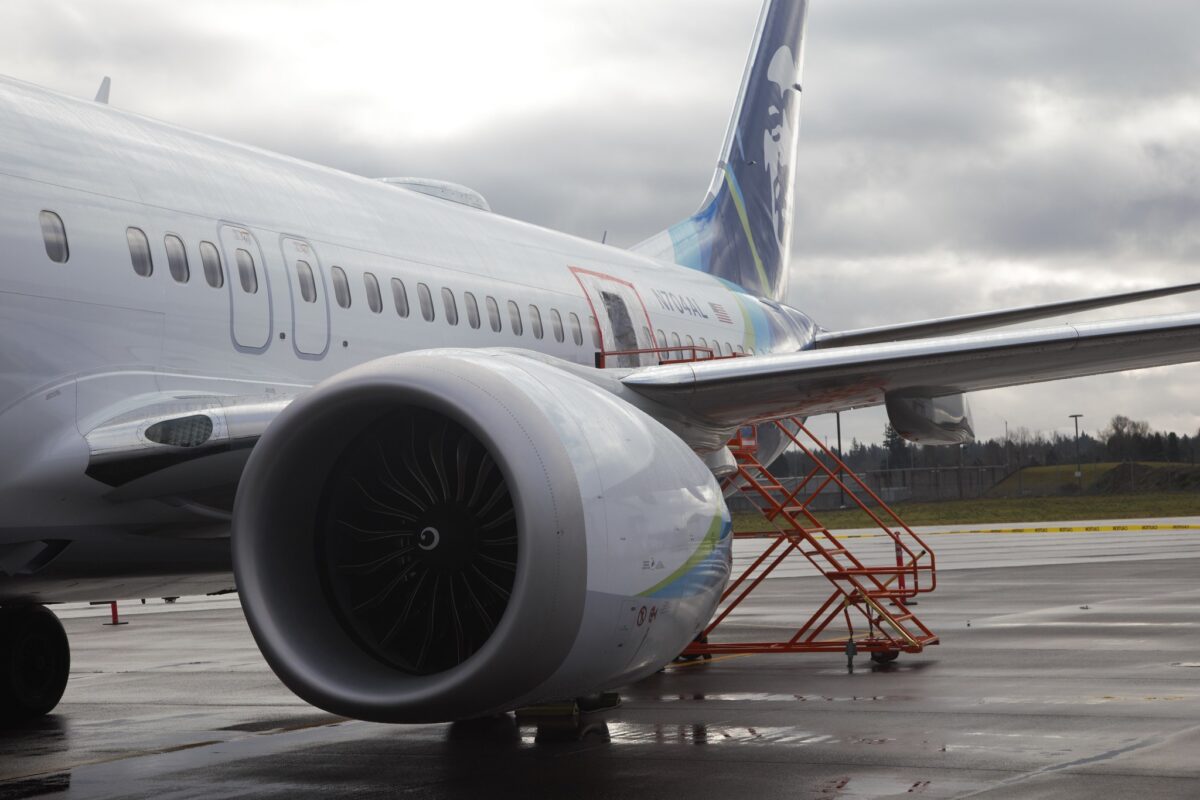Boeing executives said Wednesday that the company would continue to slow the production of its 737 Max line as it faces federal scrutiny for its production and quality control processes.
Boeing chief financial officer Brian West said the plane maker delivered 67 737s during the first quarter, but deliberately slowed the rate of production to improve its quality and safety management systems.
The Federal Aviation Administration placed a production cap of 38 737 Maxes a month after the Alaska Airlines blowout incident, but Boeing is making the planes well below that level.
West said the plane maker expected to keep production levels lower during the first half of the year and then move up to the FAA-mandated 38 737 Maxes a month.
Boeing CEO Dave Calhoun called the company’s decision to significantly scale back 737 Max production “self-inflicted” during a call with analysts on Wednesday.
“The FAA didn’t demand that,” Calhoun said. “We demanded it because we’re determined to get ahead of it.”
The U.S. plane maker burned through $4 billion due to fallout from the Alaska incident. Boeing has started compensating airlines that were affected by the nearly month-long grounding of the Max 9.
Alaska has so far received $162 million in cash for the grounding and United Airlines did not disclose the compensation it received from Boeing during the first three months of the year. West said Boeing is expecting to pay airlines $443 million for the Max 9 grounding.
The company reported an operating loss of $355 million for the first quarter.
Scaling Back 787 Dreamliner Production
Boeing is also slowing down the production of the 787 Dreamliner due to a shortage of certain key parts.
The slowdown is unrelated to recent allegations made by a Boeing engineer about the 787’s production process. Calhoun said that one of the main reasons Boeing is scaling back 787 production is because of a supply slowdown for heat exchangers.
“This is a product that used to be built in Russia,” Calhoun said. “When the invasion [into Ukraine] happened, it got moved, and the capacity of that supplier has not kept pace with us.”
The plane maker previously halted deliveries of the 787 in 2021 due to manufacturing issues.
Could an Internal Candidate Succeed Calhoun?
As Boeing faces intense pressure from airlines and lawmakers to improve its quality control processes, Calhoun announced that he would step down as CEO at the end of the year.
While a successor has not yet been named, there has been some speculation as to who could be Boeing’s next CEO. Some of the names that have been floated around for the top job include Stephanie Pope, who is now the CEO of Boeing Commercial Airplanes; Larry Culp, the CEO of GE Aerospace; and Pat Shanahan, the CEO of Spirit Aerosystems.
Calhoun said he had an internal candidate in mind, but the decision would ultimately be up to the board of directors. He added that he expected a decision would take more time.
“My view is that the next leader has to be prepared to make smart long-term decisions and get the development programs right,” he said. “I have an internal succession plan broadly that I like. We’ll see where things turn out.”
Subscribe to Skift Pro to get unlimited access to stories like these
{{monthly_count}} of {{monthly_limit}} Free Stories Read
Subscribe NowAlready a member? Sign in here
Subscribe to Skift Pro to get unlimited access to stories like these
Your story count resets on {{monthly_reset}}
Already a member? Sign in here
Subscribe to Skift Pro to get unlimited access to stories like these
Already a member? Sign in here
